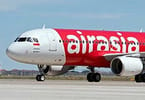In late 2009, travel agents and corporate travel managers began informing the American Society of Travel Agents and Business Travel Coalition that American Airlines was exploring with them in meetings a “direct-connect” strategy that would flip the distribution system economic model from one where the airline funds its unbundling, merchandising, and selling activities to a “user-pays” model.
In addition to layering on significant new complexities and costs to corporate managed travel programs, a “user-pays” model would result in high-value unbundled and repackaged content being available – for no channel fee – only through American’s direct-connect pipeline and for the airline to otherwise charge for the merchandizing and sale of its content through alternative channels. In other words, virtually all merchandising and distribution costs would be shifted to TMCs (travel management companies), and ultimately onto the backs of the airline’s best customers. Managed travel efficiencies would be substantially degraded.
Of course, in recent years, numerous airlines have attempted to shift costs and other distribution burdens to the customer, but a unified supply chain has repeatedly and successfully pushed back by reminding airlines that it is agencies’ corporate customers who keeps the lights on at airlines’ headquarters and that their managed travel needs must be respected. Unfortunately, TMCs are faced with another one of these challenges to the investments of significant time and money in technologies that enable TMCs and corporate travel departments to shop for, purchase, and report on airline products and services efficiently. (See background paper here .)
TMCs and corporate travel managers have begun obtaining names and companies for a signatory letter to all major US airline CEOs encouraging them to work cooperatively and in good faith with GDSs, TMCs, and corporate travel managers on the rapid development of industry standards that safeguard all participants’ interests. If after reviewing the letter below, you can support this initiative please authorize the Business Travel Coalition by April 9 to list you and your organization as a signatory to this most important letter.
For further information, contact Kevin Mitchell, chairman, Business Travel Coalition, email: [email protected] , phone: 610.999.9247.
AIRLINE CEO SIGNATORY LETTER
[name]
Chief Executive Officer
(AA, CO, DL, UA, US, WN, B6, AS)
[address]
Dear Mr. [ ]:
As corporate travel departments, travel management companies (TMCs), online travel agencies (OTAs,) and global distribution systems (GDSs), we write you to offer our partnership in extending your ancillary products and services in a manner that is consistent with consumer interests and that works optimally with de facto travel procurement systems and practices. We wish to support you in your efforts to maximize traveler uptake and resulting revenue growth from ancillary products and services. To that end, we ask you to ensure the full scope of your products is made accessible and transparent to all travelers, regardless of channel choice.
Your airline has shown that it values its corporate customers and respects the requirements of modern procurement programs. Your most valuable customers rely on the services of TMCs; together they have invested significant time and money in technologies that enable efficient shopping, booking, payment, and reporting for airline products and services. The prime objectives of managed corporate travel programs have been to enable companies to control expenses and to fulfill agreements with airlines through enforceable travel policies.
Going forward, the success of these managed travel efforts is fundamentally dependent upon travel intermediaries having efficient access to the full range of airline options for any particular trip and being able to monitor and track the comprehensive final cost of airfares plus related services purchased. To illustrate, in order to transact and subsequently report ancillary fees, such as seat upgrades and checked baggage, TMCs, and indeed all travel agents, booking air travel must have the ability to deliver such fees transparently in the shopping/booking process. Importantly, the well-established and proven workflow processes of TMCs that feed into corporate clients’ systems rely almost exclusively upon the airline booking and servicing capabilities of GDSs.
Similarly, the millions of consumers who shop and book travel on OTA sites every month, which collectively account for some 16 percent of all U.S. airlines’ bookings, have encountered an increasingly complex landscape of air travel options to evaluate. The current lack of clarity and accessibility of a la carte products prohibits widespread consumer adoption – a hindrance to achieving the revenue generation objectives that predicated your airline’s implementation of an unbundled pricing strategy in the first place.
Your airline, your distribution partners and your biggest customers have a responsibility to enable travelers to compare both the true costs and benefits of their full scope of air travel options. The only path to near-term, broad availability of your airline’s ancillary products is to develop and deploy merchandising capabilities within the existing technology framework of your distribution system partners and corporate customers.
As those partners and customers, we have developed principles and standards which we ask you to review and commit to through a public statement of support. We are requesting that you help us help you by working cooperatively, diligently and in good faith with TMCs, OTAs, GDSs, and corporate travel managers on the rapid development of industry technical standards to ensure that your unbundled products are easily accessible by all travelers via any GDS in which you participate.
We look forward to hearing from you at your earliest opportunity.
Sincerely,
[signatory]
WHAT TO TAKE AWAY FROM THIS ARTICLE:
- TMCs and corporate travel managers have begun obtaining names and companies for a signatory letter to all major US airline CEOs encouraging them to work cooperatively and in good faith with GDSs, TMCs, and corporate travel managers on the rapid development of industry standards that safeguard all participants' interests.
- Of course, in recent years, numerous airlines have attempted to shift costs and other distribution burdens to the customer, but a unified supply chain has repeatedly and successfully pushed back by reminding airlines that it is agencies' corporate customers who keeps the lights on at airlines' headquarters and that their managed travel needs must be respected.
- In late 2009, travel agents and corporate travel managers began informing the American Society of Travel Agents and Business Travel Coalition that American Airlines was exploring with them in meetings a “direct-connect” strategy that would flip the distribution system economic model from one where the airline funds its unbundling, merchandising, and selling activities to a “user-pays” model.






















